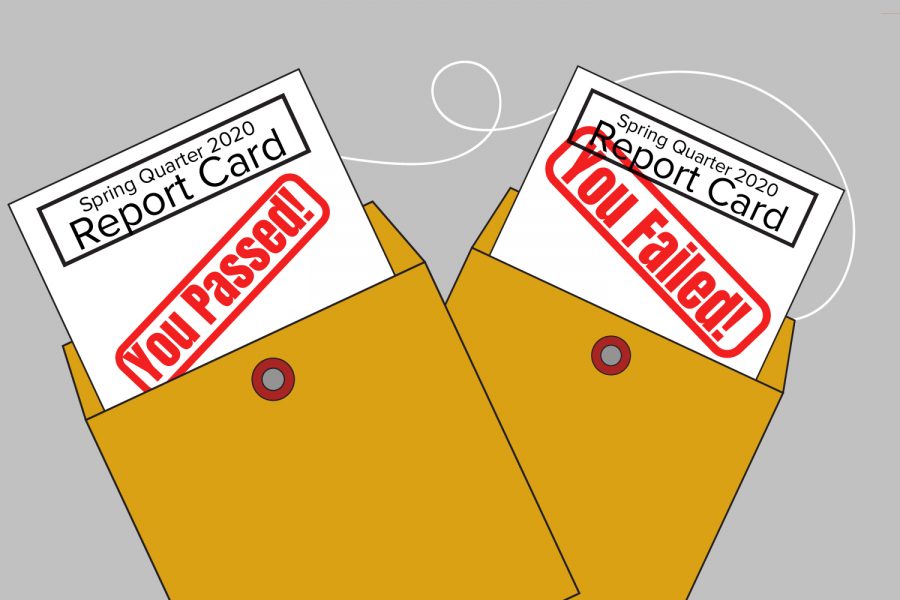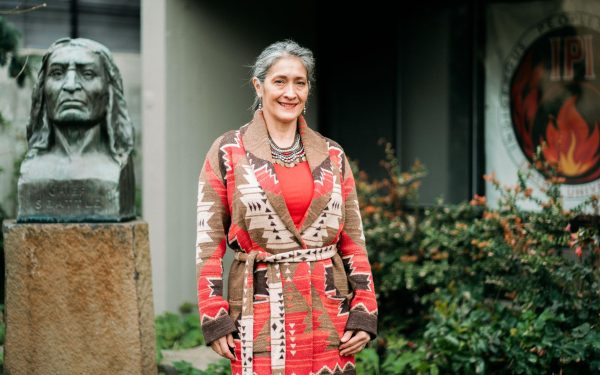Seattle U Gives Credit/Fail Option to Students during Pandemic
As we come to the end of a particularly grueling quarter, some students might not be where they want with their grades. In-person classes and online learning are very different, and for those that are struggling, Seattle University has offered a reprieve from the stress of keeping up a good grade point average during a pandemic through the option to take classes credit/fail.
Students can email the registrar’s office requesting one or more classes to be taken as credit/fail. If they receive a D- or above, they will be marked as having passed the class. The grade also does not factor into the student’s GPA. Once a student chooses to identify their class as credit/fail, this is a final decision—they can not switch back to taking the course for a letter grade.
This decision was made as a result of the Academic Assembly evaluating that it would alleviate some stress from students.
For Frank Shih, professor of engineering and president of the Academic Assembly, this was an important step of showing compassion to students during a crisis.
“The sudden move to remote learning and teaching is stressful for both faculty and students.” Shih said. “These stresses can be exacerbated by individual circumstances such as family, health issues, wage loss and more. Academic Assembly is making quick decisions that hopefully alleviates some of the avoidable stresses – like credit/fail grading options for students.”
Not all classes can be taken credit/fail, however. Some classes actually have higher standards for receiving credit for the class than a D-. Professors have made these decisions because the class grade affects whether the student can graduate with departmental honors or not. This change can be seen in the history and political science departments.
For nursing classes, students will need a C or above, and general credits in the College of Arts and Sciences are not allowed to be taken as credit/fail.
Advisors stressed the importance of communicating with them before choosing to take a class credit/fail.
The option was given to both allow flexibility for students, but also maintain the high standards for degrees that Seattle U offers. Provost Shane Martin spoke to why making this change was important to support the students.
“We are trying to be thoughtful about the community and one of the ways that we have been trying to help students in being understanding of their situations,” Martin said. “In many cases students now have the ability to take classes credit/fail because we know how hard this can be and we want to be able to support our students.”
Not everyone is a fan of how this new option operates. Professor of Political Science Erik Olsen commented on why he thinks that the system makes it harder for professors to do their jobs.
“It really changes the relationship between the professors and the students. It’s hard to adjust teaching because we have the same assignments, same work, same presentations, but some students are coming at it from a very different angle,” Olsen said.
Olsen maintained that he wants every student to succeed and recognizes that the credit/fail option might be the best way for students to take classes without being overwhelmed in an already stressful time. He wants students to continue to work as hard as they are able through in his classes to make sure that he knows they are getting the best education from him as possible.
“If you decide to go for the minimum grade for assignments it changes the nature of the class,” Olsen said. “I think it’s important that students have these options, but it’s hard as a teacher to see some students only do the bare minimum. It’s hard to teach knowing that.”
Students can request their classes be changed to credit/fail for Spring Quarter after June 18 and before October 26.











